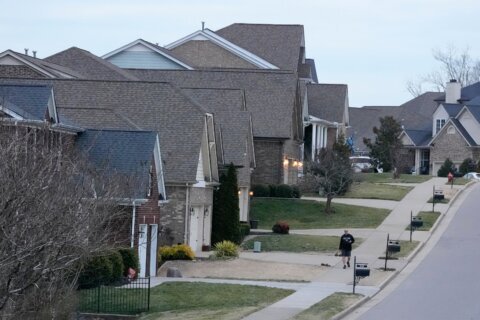You may have found the perfect home to purchase. But is it still ideal if it’s in a college town?
Whether you plan for your family to live in the home or rent it out, there are quite a few things to consider about owning real estate in a college town before you close the deal.
From the area’s walkability to its likely close access to top-notch hospitals, a college town offers many benefits both to investors looking to make money through rental homes and to families planning to live there full-time.
[Read: 6 Things to Consider Before Investing in a Rental Property.]
If you’re making an investment, the pros do look good:
— Unlimited supply of renters. Colleges bring in new students each semester, which also means new renters coming in. You shouldn’t have a shortage of renters vying for your property.
— Good rental prices. The demand for rental homes is high in these areas, and this helps to keep rental prices stable. Even if home rentals aren’t doing well in other areas, you can expect the demand and rent prices to remain good for you. Rentals might even be paid for by parents or the college, so you’ll likely have a solid, steady rental income each year as students populate the off-campus neighborhoods.
— No vacancies. You don’t have to worry about letting your property sit empty and vulnerable because there are always college students looking for housing close to their university or college.
— Easier marketing. Just being near a college is enough to bring in renters, so there might not be as much that needs to be done in terms of advertising your property. However, if you’re looking for a specific type of renter, such as faculty or grad students, you’ll probably need a more targeted marketing strategy.
If you plan to live in the home, there are some pros for your family, too:
— Added security. Even if you’re not a college student, living in an area near a college always means extra security. Colleges often pay for additional security staff and more police patrols and presence in the area, so your family is safe. Look into which college towns are considered the safest to be sure you know which places receive the most attention to safety.
— Close to everything. Businesses in urban areas near colleges are often close enough to walk to. This means you might not need to drive much for everyday errands.
— You’re in demand. If you ever decide to sell, the home is prime property for someone wanting to invest in rental property for students or a family wanting to buy a home near a college town.
[Read: Should You Buy Your College Student a Condo or House?]
Living in a college town does sound great, right? But before you jump right in, consider the negative aspects as you carefully weigh your decision.
While a college town can be a good investment property, there are a few cons:
— High turnover rate. While it’s true you’ll have lots of potential renters, they probably won’t stay long, so you’ll have a lot of tenants moving in and out. Some college students change living arrangements after a few months, so don’t expect to have renters signing a long lease.
— The off-season. Few students attend college during summer break, so expect a few months of few or no tenants. While the situation often changes in the fall, consider what you’ll do for the summer months. Will you require tenants to sign a year-long lease, even if they are only there for nine months? This is a way to get rent for a whole year, even if the student leaves for the summer. You may want to consider allowing your renters to sublet while they’re gone during the break in classes. Just be sure you understand laws for renting to college students.
— Wear and tear. College students aren’t always the most responsible or the cleanest renters. Parties are part of the college experience as well, so there might be property damage and a lot of wear and tear in the short time the tenants are there. This damage can add up to more than you collected as a security deposit, depending on the tenants’ maturity.
[Read: 7 Things You Should Know About Tenant Rights.]
Living close to a college may have some advantages, but there are cons, too:
— Noise and other activity. Most of your neighbors are college students who love to have parties and get loud. They also often travel on foot, so you may notice more street activity than a non-college neighborhood. If you’re looking for peace and quiet, a college town is likely not for you.
— No long-term neighbors. College towns have high turnover rates for tenants, so you can expect to have new neighbors at least once a year. If you’re looking for a place where you can make friends and know what to expect from your neighbors, a college town isn’t it.
— Fewer families. College towns are highly populated by college-age people, and they’re usually single with no families. This is not good if you have kids and want to have other families in the neighborhood to associate with.
There is a lot to consider if you’re thinking of buying property in a college town. Buying a new home to live in or to use as a rental property always has its risks, but as with any big decision, you can sit down and consider them carefully before making a decision.
More from U.S. News
Should You Live Near a Cemetery, Casino or These Other Landmarks?
The 25 Most Desirable Places to Live in the U.S. in 2017
The 25 Best Places People Are Moving to in the U.S. in 2017
Should You Buy a House in a College Town? originally appeared on usnews.com






